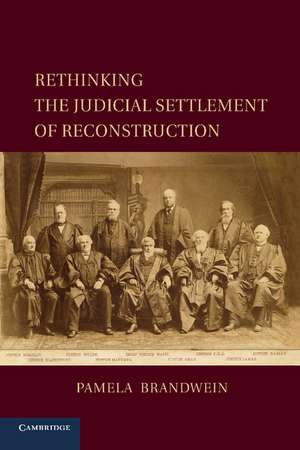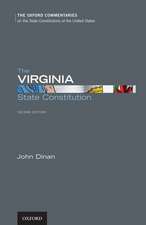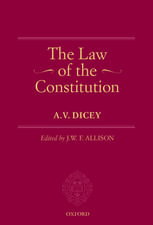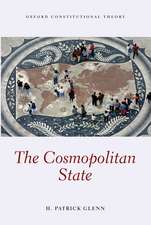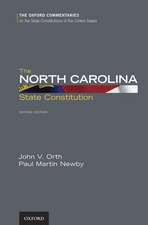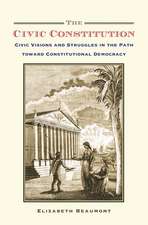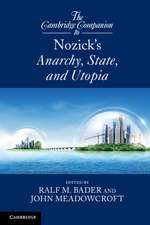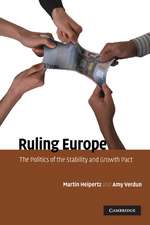Rethinking the Judicial Settlement of Reconstruction: Cambridge Studies on the American Constitution
Autor Pamela Brandweinen Limba Engleză Paperback – 5 mar 2014
| Toate formatele și edițiile | Preț | Express |
|---|---|---|
| Paperback (1) | 287.07 lei 6-8 săpt. | |
| Cambridge University Press – 5 mar 2014 | 287.07 lei 6-8 săpt. | |
| Hardback (1) | 695.59 lei 6-8 săpt. | |
| Cambridge University Press – 20 feb 2011 | 695.59 lei 6-8 săpt. |
Din seria Cambridge Studies on the American Constitution
-
 Preț: 158.77 lei
Preț: 158.77 lei -
 Preț: 237.96 lei
Preț: 237.96 lei -
 Preț: 204.86 lei
Preț: 204.86 lei -
 Preț: 277.54 lei
Preț: 277.54 lei - 11%
 Preț: 427.15 lei
Preț: 427.15 lei -
 Preț: 269.58 lei
Preț: 269.58 lei
Preț: 287.07 lei
Nou
Puncte Express: 431
Preț estimativ în valută:
54.93€ • 57.47$ • 45.63£
54.93€ • 57.47$ • 45.63£
Carte tipărită la comandă
Livrare economică 03-17 aprilie
Preluare comenzi: 021 569.72.76
Specificații
ISBN-13: 9781107625914
ISBN-10: 1107625912
Pagini: 282
Dimensiuni: 156 x 234 x 16 mm
Greutate: 0.44 kg
Editura: Cambridge University Press
Colecția Cambridge University Press
Seria Cambridge Studies on the American Constitution
Locul publicării:New York, United States
ISBN-10: 1107625912
Pagini: 282
Dimensiuni: 156 x 234 x 16 mm
Greutate: 0.44 kg
Editura: Cambridge University Press
Colecția Cambridge University Press
Seria Cambridge Studies on the American Constitution
Locul publicării:New York, United States
Cuprins
1. Introduction; 2. The emergence of the concept of state neglect, 1867–73; 3. The civil/social distinction: an intramural Republican debate; 4. The birth of state action doctrine, 1874–6; 5. A surviving sectional context, 1876–91; 6. The Civil Rights Cases and the language of state neglect; 7. Definitive judicial abandonment and residual expressions, 1896–1909; 8. A loss of context: the rise of distorted knowledge about state action doctrine; 9. Conclusion.
Recenzii
“In a sophisticated analysis of the connection between politics and constitutional law, Professor Brandwein revolutionizes our understanding of the role the federal courts played in defining national power to protect civil and political rights during and after Reconstruction.”
—Michael Les Benedict, Emeritus Professor of History, The Ohio State University
“Everyone knows that the Supreme Court murdered the fourteenth amendment’s promise of racial equality. Everyone knows where the murder was committed: in the Slaughter-House Cases and the Civil Rights Cases. Everyone knows the murder weapons: pinched readings of privileges and immunities and of state action. Well, it turns out what everyone knows is dead wrong. In a calm, methodical, and absolutely devastating account, Brandwein shows that in fact the Supreme Court left plenty of room for Congress to act—and Congress faltered. And she offers a compelling whodunit of her own: the tale of how we came to badly misunderstand Reconstruction jurisprudence. This boldly revisionist book opens up dramatic new vistas on American political development and today's constitutional law. It's indispensable—and a great read, too.”
—Don Herzog, University of Michigan
“Pamela Brandwein is one of the most interesting—and meticulous—students of the Supreme Court’s response to Reconstruction. Her close analyses of leading cases have led her to offer an important new reading of that response that makes the Court less complicit in the oppression of African Americans than suggested by the now conventional wisdom. Anyone interested in the legal history of this period must attend to her argument.”
—Sanford Levinson, University of Texas Law School
“This is the best law and politics treatment of the Reconstruction era and its long and dramatic aftermath that has ever been written. Brandwein’s monumental achievement rests on a subtle application and revision of how political scientists think about the role of the Supreme Court in politics. It also offers a model of how to do legal history, based on meticulous and deep primary research and a sustained effort to think about how judges and justices applied the Civil War Amendments and their enforcement statutes. Brandwein takes us deeper into the conceptual and legal world of the Reconstruction and post-Reconstruction rights revolution than anyone has ever taken us — and she thereby forces us to rethink the development of civil and voting rights law in the 20th century. Remarkably, the Reconstruction and post-Reconstruction rights revolution collapsed and disappeared, leaving few conceptual legacies; our contemporary voting and civil rights jurisprudence is fundamentally different. This brilliant study will change how we think about American political and constitutional development.”
—Rick Valelly, Swarthmore College
—Michael Les Benedict, Emeritus Professor of History, The Ohio State University
“Everyone knows that the Supreme Court murdered the fourteenth amendment’s promise of racial equality. Everyone knows where the murder was committed: in the Slaughter-House Cases and the Civil Rights Cases. Everyone knows the murder weapons: pinched readings of privileges and immunities and of state action. Well, it turns out what everyone knows is dead wrong. In a calm, methodical, and absolutely devastating account, Brandwein shows that in fact the Supreme Court left plenty of room for Congress to act—and Congress faltered. And she offers a compelling whodunit of her own: the tale of how we came to badly misunderstand Reconstruction jurisprudence. This boldly revisionist book opens up dramatic new vistas on American political development and today's constitutional law. It's indispensable—and a great read, too.”
—Don Herzog, University of Michigan
“Pamela Brandwein is one of the most interesting—and meticulous—students of the Supreme Court’s response to Reconstruction. Her close analyses of leading cases have led her to offer an important new reading of that response that makes the Court less complicit in the oppression of African Americans than suggested by the now conventional wisdom. Anyone interested in the legal history of this period must attend to her argument.”
—Sanford Levinson, University of Texas Law School
“This is the best law and politics treatment of the Reconstruction era and its long and dramatic aftermath that has ever been written. Brandwein’s monumental achievement rests on a subtle application and revision of how political scientists think about the role of the Supreme Court in politics. It also offers a model of how to do legal history, based on meticulous and deep primary research and a sustained effort to think about how judges and justices applied the Civil War Amendments and their enforcement statutes. Brandwein takes us deeper into the conceptual and legal world of the Reconstruction and post-Reconstruction rights revolution than anyone has ever taken us — and she thereby forces us to rethink the development of civil and voting rights law in the 20th century. Remarkably, the Reconstruction and post-Reconstruction rights revolution collapsed and disappeared, leaving few conceptual legacies; our contemporary voting and civil rights jurisprudence is fundamentally different. This brilliant study will change how we think about American political and constitutional development.”
—Rick Valelly, Swarthmore College
Notă biografică
Descriere
Pamela Brandwein unveils a lost jurisprudence of rights and redefines the legal transition to Jim Crow.
